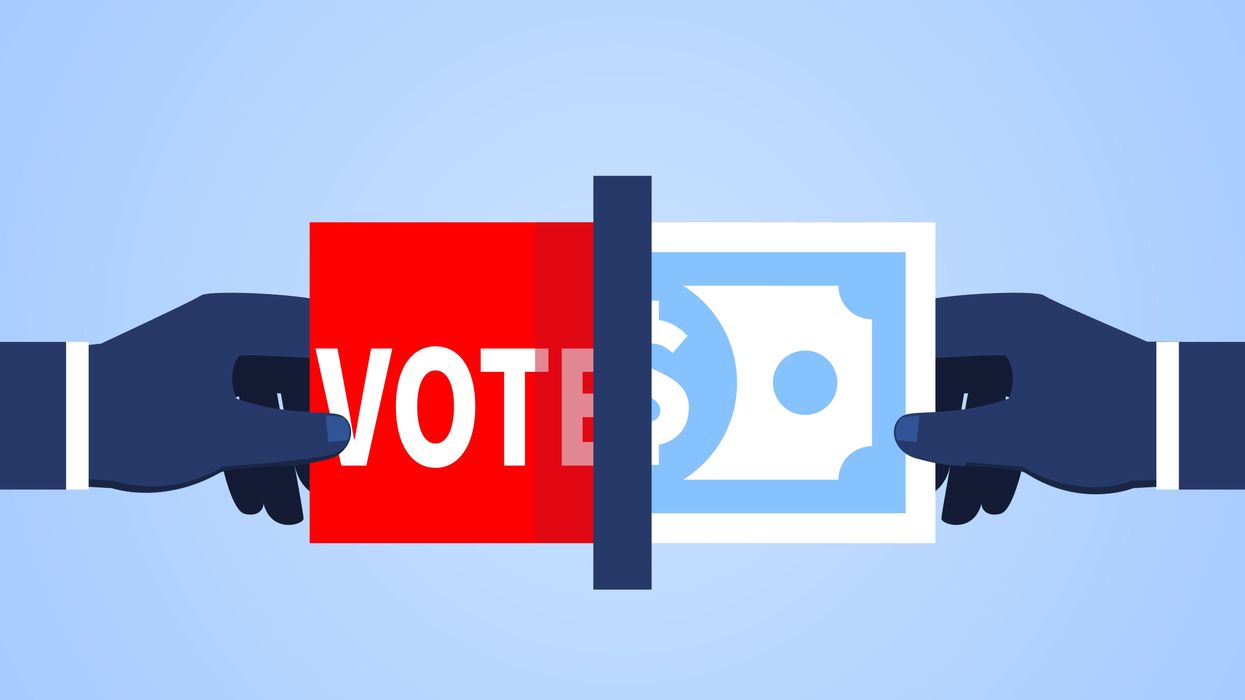Runoff elections often come at a high cost to taxpayers, but yield some of the lowest voter turnouts of any political contest, a new report found.
The report, released Thursday by the center-left Third Way and nonpartisan FairVote, analyzed recent runoff elections in Texas and Louisiana. In both states, an additional round of voting cost taxpayers millions of dollars, while only attracting a small share of the electorate.
The two good-government organizations suggest implementing ranked-choice voting in states that hold runoff elections in order to lessen the financial burden and preserve voter engagement.
Runoff elections were first implemented around the start of the 20th century as a tool for white Southern Democrats to unite their factions going into general elections and maintain power over Republicans. Ten states, mostly in the South, still hold runoffs if no candidate reaches the required threshold for victory — usually a majority of the vote — in the primary. Georgia and Louisiana are the only two states that also hold runoffs for general elections.
Third Way and FairVote, using public records requests, gathered data on the election expenses for seven of Texas' most populous counties, as well as for two statewide contests in Louisiana.
In 2018 and 2020, runoff elections in Harris, Dallas, Travis, Bexar, Collin, Tarrant and Fort Bend counties cost taxpayers nearly $5.5 million on top of the $11 million spent on primaries in those same jurisdictions.
On average, voter turnout in those 2018 and 2020 contests dropped a whopping 51 percent from the primaries to their subsequent runoffs. This data shows the "strong disincentive for voters to return to the polls and vote again for the same office," the report states.
In Louisiana, the nominating contests are known as "jungle primaries." They are nonpartisan, meaning all candidates run on one initial ballot. Any candidate who captures a majority of the vote wins the race. Runoffs are therefore treated more like a general election. Still, the election spending data shows a similar problem.
The 2016 Senate primary cost taxpayers just over $6 million. Then one month later, the state spent almost the same amount (more than $5 million) on the runoff for that contest. The 2019 gubernatorial primary and subsequent runoff cost nearly the same amounts.
While turnout in the 2016 Senate runoff dropped 54 percent from the primary, voter participation actually increased by 12 percent from the 2019 gubernatorial primary to the runoff. The report says turnout was helped by the gubernatorial runoff being competitive and held in November, when voters are more likely to expect elections. As a result, the researchers recommend states schedule runoffs in November whenever possible to bolster turnout.
But the best solution, according to Third Way and FairVote, is ranked-choice voting, which is one of the core tenets of FairVote's work. In an RCV election, voters rank their preferred candidate. If no one receives a majority of first-position votes, an "instant runoff" ensues and the ballots cast for the candidate with the fewest first choices are then distributed to voters' second options. The process continues until someone has a majority.
The two groups argue RCV would reduce election costs, improve the voting experience and bolster the campaigns of women and people of color.
"States across the South are burdening voters with runoff elections by making people set aside time out of their busy days to vote in an extra round. And to kick them while they are down, in several instances, governments are using precious taxpayer dollars for this inconvenience," said David de la Fuente, senior political analyst at Third Way and one of the authors of the report.
"Ranked-choice voting would enshrine the majority rule voters want for a healthy democracy while saving their time and dime," he said.
Ranked-choice voting is currently used in 30 jurisdictions across the country, as well as statewide in Maine. Alaska will also use it statewide starting next year. In May, two dozen cities in Utah opted to use RCV for municipal elections this fall.
New York City used ranked-choice voting for citywide primaries for the first time this year, and it appears to have resulted in women being poised to dominate the city council for the first time. Advocates point to RCV as a big reason for the shift in representation.
Another alternative to plurality voting that has gained momentum in recent years is approval voting. Under that system, voters choose any number of candidates they "approve" of, and the candidate chosen the most wins. St. Louis, Mo., joined Fargo, N.D., this year as the first cities to use approval voting.




















Marco Rubio is the only adult left in the room